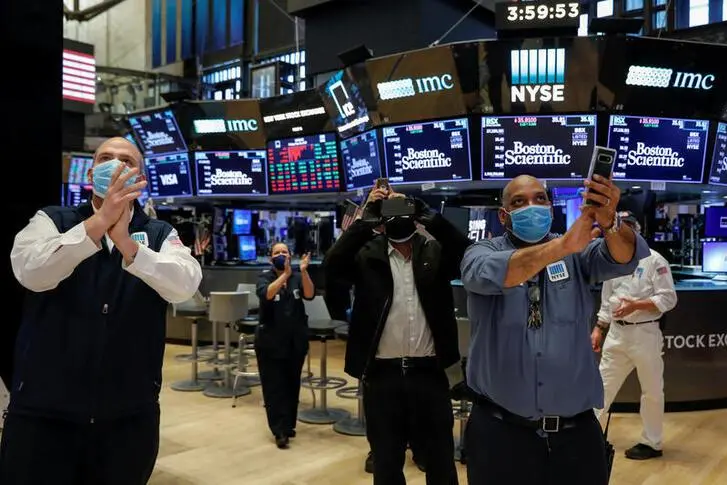PHOTO
(The authors are Reuters Breakingviews columnists. The opinions expressed are their own.)
SAN FRANCISCO/NEW YORK - T he rush of companies looking to go public won’t last much longer. The amount raised in U.S. initial public offerings is at its highest since 2014, and bankers’ pipelines are full. It’s partly due to venture capitalists that want to exit aging investments while stock investors' speculative juices are flowing. But an upcoming election limits the window of opportunity.
U.S. unemployment was at a 50-year-record low and markets were humming when the pandemic slammed the economy in March. A slew of companies, like home-sharing app Airbnb, put plans to go public on hold. But markets rebounded a few months later. Warner Music and ZoomInfo Technologies were among the first to take advantage. The number of completed U.S. IPOs in 2020 through Tuesday, not including special-purpose acquisition companies, totaled 111, the highest since 2018, according to Refinitiv data. The nearly $41 billion raised is the largest amount since 2014.
Some of the most anticipated offerings are still to come. Data warehouse firm Snowflake plans on going public at a market capitalization of up to $24 billion. Backer Sequoia Capital and other venture capitalists like Founders Fund are in multiple startups hitting the markets.
The median age of a unicorn – a startup worth at least $1 billion – is eight years, according to Crunchbase, and software valuations have rocketed, so investors are eager to exit. Airbnb’s plans to go public are back on. SPACs that raise funds through IPOs to buy other companies have also proliferated this year. The Nasdaq 100 Index is up more than 30% in 2020 and Renaissance Capital’s IPO index is up nearly 55%.
But the U.S. presidential election in November could trigger volatility. Healthcare firms made up only about 13% of floats by value this year, down by almost half from 2019, one sign that electoral uncertainty is already in play in a sector where the government sets rules and provides over $1 trillion of revenue.
Polls show Democratic candidate Joe Biden leading President Donald Trump, but the result could be close. The increase in mail-in ballots because of the pandemic could delay a definitive outcome, as could legal challenges. In a more typical year, there might be further chances to go public. In 2020, the current period could be the last chance.
CONTEXT NEWS
- The number of completed U.S. initial public offerings in 2020 through Sept. 8, excluding special purpose acquisition companies, totaled 111, the highest since 2018, according to Refinitiv data. The nearly $41 billion raised in those offerings is the largest amount since 2014.
- One offering still to come is by managed-data warehouse firm Snowflake, which said in a Sept. 8 filing that it plans to raise up to $2.7 billion in an IPO. That’s based on selling 28 million shares at a price range between $75 and $85 per share.
- Separately, data analytics company Palantir Technologies held an investor day on Sept. 9 ahead of a direct listing planned for later this month.
(The authors are Reuters Breakingviews columnists. The opinions expressed are their own.)
(Editing by Richard Beales and Amanda Gomez) ((gina.chon@thomsonreuters.com; robert.cyran@thomsonreuters.com; Reuters Messaging: gina.chon.thomsonreuters.com@reuters.net; robert.cyran.thomsonreuters.com@reuters.net))





















